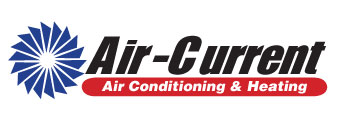Completing the search for your first home is exciting. You’re likely trying to keep track of a dozen things or more to ensure you’re making the right choice. We believe that understanding your potential new HVAC system is crucial. The property’s HVAC system represents a significant investment and potential source of long-term costs, illustrating why a detailed inspection should be a top priority for first-time homebuyers.
In this guide, we’ll outline seven tips for discovering all there is to know about a home’s heating and cooling system. And if you want a more in-depth opinion from the pros, feel free to call Air Current AC & Heat. Our staff can help you compare your options with industry insights you won’t find elsewhere.
1. What HVAC System Are You Working With?
Start by determining what specific HVAC system the home features. Furnaces tend to last longer compared to air conditioners, and some of the latest types of HVAC products like heat pumps can offer average life spans longer than ever. Getting the details on the make and specific model gives you a much better sense of how much maintenance it will require.
2. How Old Is the Current HVAC System?
Another good idea is to find out how old the HVAC system is when you’re considering a potential new home. For the most part, HVAC systems last about 10-12 years. Having the knowledge of when it was installed helps you prepare for any needed servicing or considerations if it might eventually stop working. Older systems are more prone to problems, so planning ahead of time for a replacement unit could be necessary sooner than you thought.
3. Is the Warranty Active?
Be sure to check the HVAC system is still under warranty. If it is, that’s great news because it can help with maintenance costs. HVAC warranties should take care of parts and labor, but specifics will vary. Review any terms that aren’t familiar to make sure you fully understand your coverage and potential out-of-pocket costs.
4. Does the System Have a Documented Maintenance History?
Take a close look at the maintenance history of the HVAC system, if this kind of history is available. This service history can reveal if there have been regular problems or how often a tune-up was scheduled. Ask about records for key tasks such as changing the air filter, which is a positive sign indicating regularly scheduled tune-ups.
5. What Are the Energy Efficiency Ratings?
Selecting a system with great energy efficiency isn’t just smart; it leads to more manageable utility bills and a smaller environmental impact. Locate the seasonal energy efficiency ratio (SEER) ratings for air conditioning and the annual fuel utilization efficiency (AFUE) for furnaces. Higher SEER ratings mean better cooling across the entire season, while strong AFUE ratings indicate that the fuel is more effectively burned for useable heat.
6. Can You Spot Trouble After Completing an Informal Inspection?
Even if you don’t have experience in HVAC systems, you can still take a moment to examine the HVAC system yourself. Look for any concerning items that might have been overlooked. This can mean bizarre noises, spots with uneven heating or cooling and attempts to cover up any visible damage.
7. Have You Sought Out Expert Advice?
If you’re unsure about the overall state of the HVAC system, it’s beneficial to get input from trained HVAC technicians. They can spot things you might miss, including leaking coolant, bad electrical connections or damaged ductwork.
A Chat with Air Current AC & Heat Helps Take the Stress Out of Your Home-Buying Journey
Finding your first home ought to be exciting, and Air Current AC & Heat will do everything possible to ensure yours is too. Connect with us at 713-257-9226. We can talk about how our HVAC services ease your mind, giving you what you need to step into your new home with confidence.
